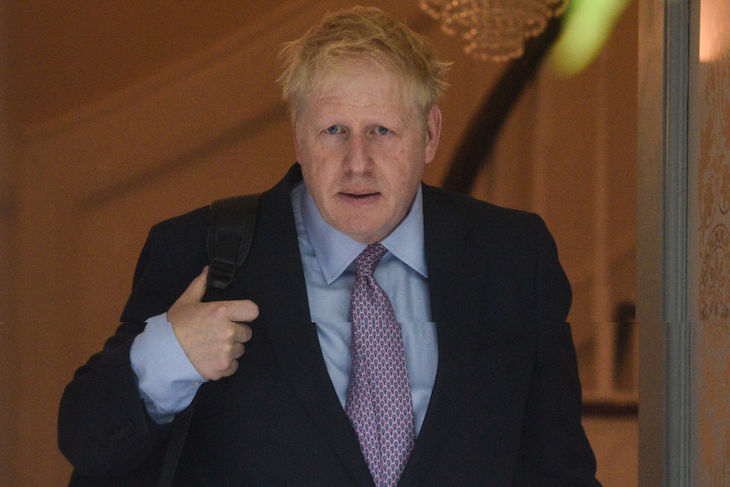The concept of Boris Johnson avoiding publicity takes some getting used to. Normally, the man seeks out TV studios like apes seek out trees – they are a natural habitat from which it would be cruel to separate him. Yet Boris has suddenly gone missing, to the point Boris-watchers might soon start to worry about possible extinction. He is refusing all broadcast interviews, and has limited his appearance in the Conservative leadership election campaign so far to a single newspaper interview with the Sunday Times.
There is, of course, some logic behind his sudden shyness. When Boris meets a microphone there is always a possibility – or a probability – of a gaffe which will go on to dominate the news agenda for days afterwards. That, indeed, might not be helpful when it comes to persuading his fellow MPs to put him on the list of two candidates that will be put forward to Conservative members. But I would say there is a bigger risk on the other side: that his refusal to appear in public will cost him by making him look ‘frit’, as Mrs Thatcher would have put it.
Boris seems to have learned nothing from Theresa May’s 2017 election disaster. She tried to use exactly the same strategy: keeping out of TV debates in the belief that while they offered her little advantage, they provided an opportunity for a slip-up. Why take risks when you are way ahead in the polls? But as May found out to her cost, a no-show in a TV debate can be even more costly than a gaffe. People start to see you as aloof, as treating the electorate with contempt. There was no greater turning point in the 2017 campaign than when May refused to turn up to a debate and sent Amber Rudd instead – even though Rudd had just lost her father. It made May look evasive and pathetic – and lacking any empathy for her colleague. Her image never recovered.
It comes as no surprise that Boris is reported to be receiving advice from Sir Lynton Crosby, who also advised May in the 2017 election campaign. Crosby has become the Neil Woodford of electioneering – like the investment ‘genius’ who had to block people withdrawing money from one of his funds last week so dismal has been its performance, Crosby has a reputation built on past triumphs but has found his magic touch has deserted him. He may have helped Boris win his two terms as Mayor of London, but that doesn’t mean his advice deserves to be followed now.
Without public appearances, Boris is nothing. His whole selling point as Tory leader is that he stirs the public, that he effuses optimism and entertains us – and that by doing so can win elections. There is a rather less obvious case for Boris as a visionary or crafty backroom strategist. By keeping out of public view he is depriving himself of the opportunity to demonstrate his strongest selling points. If he wants to win he needs to get back in those studios soon.







Comments